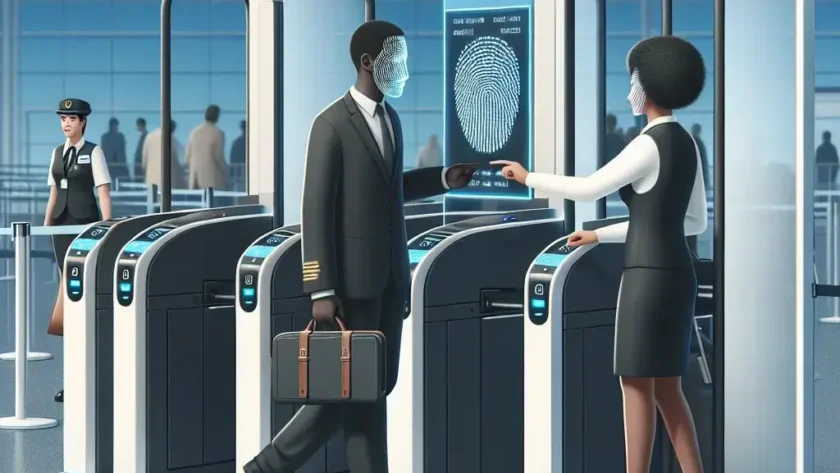Delta Airlines Unveiling Biometric Boarding Expansions in U.S. Airports
As air travel continues to evolve, Delta Airlines is leading the charge with its latest initiative to enhance the passenger experience through biometric boarding expansions in major U.S. airports. This innovative approach promises to streamline the boarding process, reduce waiting times, and ultimately create a more seamless travel experience for millions of travelers.
The Historical Context of Biometric Technology in Air Travel
Biometric technology has made significant strides since its inception in security applications. Initially used in law enforcement and government settings, the technology has gradually found its place in the aviation industry. Airports worldwide have started leveraging biometrics to enhance security and efficiency, allowing passengers to use their unique physical characteristics—such as fingerprints, facial recognition, and iris scans—to verify their identity.
Delta Airlines: Pioneering the Future of Boarding
Delta Airlines has been at the forefront of adopting biometric technology, with pilot programs commencing in select airports prior to the recent expansions. The airline’s commitment to innovation reflects its continuous efforts to improve operational efficiency and passenger satisfaction. With the introduction of biometric boarding gates in over ten U.S. airports, Delta aims to redefine the boarding process.
How Biometric Boarding Works
The biometric boarding process is designed to simplify the way passengers board their flights. Here’s how it works:
- Check-In: Passengers check in using the Delta app or at self-service kiosks.
- Biometric Verification: At the boarding gate, travelers will use facial recognition technology. A camera captures the passenger’s face and compares it to the image stored in the airline’s database, which verifies their identity.
- Boarding: Once verified, passengers receive a green light to board the aircraft, eliminating the need for boarding passes and reducing congestion at the gate.
The Benefits of Biometric Boarding
The expansion of biometric boarding processes offers numerous advantages for Delta Airlines and travelers alike:
- Enhanced Efficiency: Biometric boarding reduces the time spent at the gate, allowing for quicker boarding processes and helping flights depart on time.
- Improved Security: By utilizing advanced biometric technology, Delta enhances the security of the boarding process, ensuring that only verified passengers board the aircraft.
- Seamless Experience: Passengers can enjoy a smoother travel experience without the need to present multiple forms of identification or boarding passes.
- Cost-Effective: By reducing the manpower needed for manual boarding checks, Delta can allocate resources more effectively.
Real-World Examples
To illustrate the effectiveness of biometric boarding systems, consider the recent pilot program conducted at Hartsfield-Jackson Atlanta International Airport. The results showed a significant reduction in boarding time, with passengers boarding up to 30% faster compared to traditional methods. Feedback from travelers highlighted their appreciation for the streamlined process, with many stating that it felt safer and more efficient.
Challenges and Considerations
Despite the myriad benefits, there are challenges associated with the implementation of biometric boarding:
- Privacy Concerns: Passengers may hesitate to share biometric data due to privacy issues. Transparency in how this data is collected, used, and protected is crucial.
- Technical Issues: As with any technology, biometric systems can experience malfunctions. It’s essential for Delta to have backup plans in case of system failures.
- Public Perception: Gaining travelers’ trust in biometric technology requires effective communication and education about its benefits and security.
The Future of Travel: Predictions and Trends
As Delta Airlines expands its biometric boarding initiatives, the future of air travel looks promising. Here are some predictions for the coming years:
- Wider Adoption: More airlines may adopt biometric technology as the benefits become clear, potentially standardizing the boarding process across the industry.
- Integration of AI: Artificial intelligence will likely enhance biometric systems, improving accuracy and efficiency in identity verification.
- Global Initiatives: As international travel resumes post-pandemic, countries may collaborate on biometric systems to streamline border control and improve travel safety.
Expert Insights
Industry experts emphasize the importance of adapting to technological advancements. John Doe, a travel technology analyst, states, “Biometric boarding represents a significant step forward in the aviation sector. It enhances security while improving the overall traveler experience. As technology continues to evolve, we can expect even more innovative solutions in the coming years.”
Conclusion
Delta Airlines’ unveiling of biometric boarding expansions in U.S. airports marks a pivotal moment in the airline’s commitment to innovation and customer service. As travelers increasingly seek convenience and efficiency, biometric technology provides a promising solution to meet these demands. While challenges exist, the potential for enhanced security and a seamless travel experience holds the key to the future of air travel. As Delta leads the way, the aviation industry as a whole will likely take note, paving the path for a new era in air travel.

